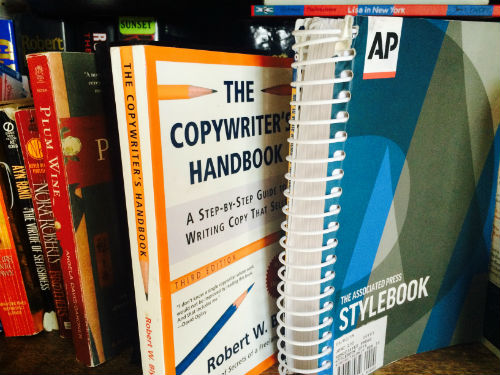Associated Press (AP) style rules challenge even well-established business reporters. That’s no surprise given that the 2015 edition almost exceeds 600 pages. And if you’re not writing for an outlet that adheres to AP rules such as Bloomberg, which uses its own style, you lose precious practice. But don’t despair. Here’s another short list of AP rules that, in the bustle of the daily/weekly deadline, frequently evade us.
Blue-collar Americans
Following the compound modifier rule, blue-collar Americans takes a hyphen, along with blue-collar workers. Door-to-door, when used as a compound modifier, also takes hyphens. For example, he is a door-to-door salesman. Otherwise, he went from door to door selling tree-repair services.
Currency
Always use lowercase for dollars. Use figures and the $ in all except casual references or amounts without a figure, my stylebook states. For instance, the book cost $25. And, please give me a dollar. Things get a little tricky with million. For amounts exceeding 1 million, use up to two decimal places. For example, the task force spent $4.35 million, and he proposed a $300 billion budget.
Technology terms
The book strictly distinguishes internet from the world wide web. Internet describes the decentralized, world-wide network of computers that can communicate with each other, while the world wide web, like email, is a subset of the internet, my 2015 stylebook reads. The rule, verbatim: “They are not synonymous and should not be used interchangeably in stories.” Note too: this year’s stylebook now makes internet and web lowercase versus uppercase.
Thankfully, email is acceptable in all references for electronic mail. However, use a hyphen with other similar terms, such as e-book, e-business and e-commerce. And end user, which the AP stylebook defines as a term technology developers use when imagining the audience for software or hardware, takes no hyphen as a noun, only as an adjective. For example, the end-user experience. In all uses, video games are two words, but videotape (both as a noun and verb) is one.
Brand names
In most instances, AP asks that we capitalize the name. However, avoid using brand names unless they feel essential to a story. Note also: because readers often link drugs with narcotics, medicine is the preferred word to specify someone taking medication. Also, if you’re writing about a company-sponsored event, use the name on first reference only when the event is identified only by the company’s name. If readers can identify an event without the company’s name, drop the name even on first reference and mention the sponsor as an editor’s note. Therefore, a business reporter would write about the FedEx Orange bowl as Orange Bowl in their story.
Organizations and clubs
The stylebook asks that we capitalize the proper names for organizations including Lions Club, Independent Order of Odd Fellows and Rotary club, but also go a step further and capitalize membership. Therefore, you’d be correct in writing, “She is a Rotarian.”
Union names
A couple of interesting rules surrounding unions include the note to make autoworkers and steelworkers one word; use two words for other job descriptions: bakery workers, mine workers etc. Also, the book condones us condensing the formal names of unions to accepted short forms that capitalize characteristic words from the full name followed by union in lowercase. For instance, United Mine Workers and United Mine Workers union are fine.
United Nations
The world organization becomes U.N. in the body and UN in headlines. But for datelines, write UNITED NATIONS.
Recession vs. depression
AP’s stylebook defines a recession as a temporary phenomenon, a falling-off of economic activity that could continue into a depression. If an economy or industry is particularly robust, however, it’s recession-proof. Capitalize Depression and the Great Depression. However, you’d write “the depression of the 1930s” using all lowercase.











